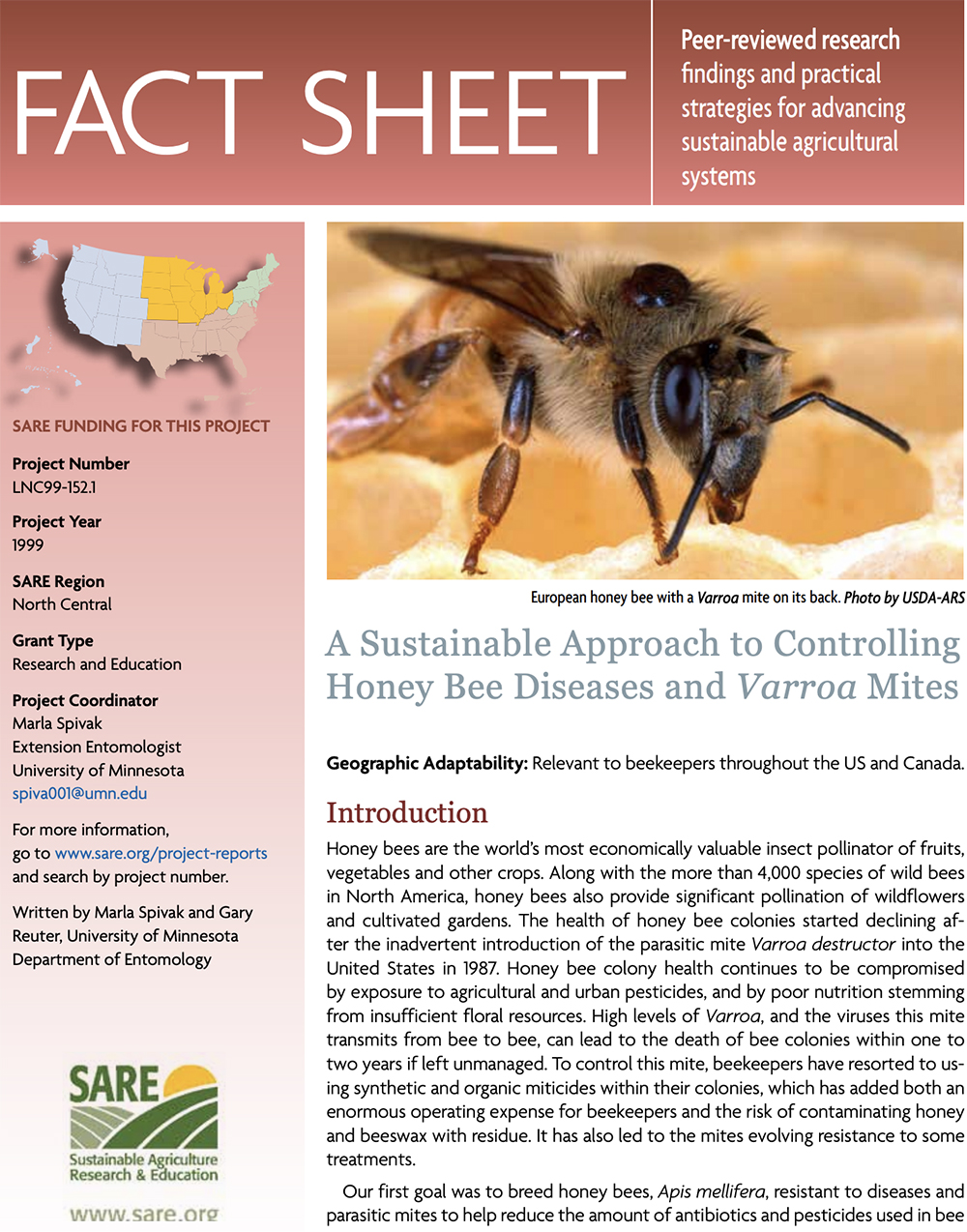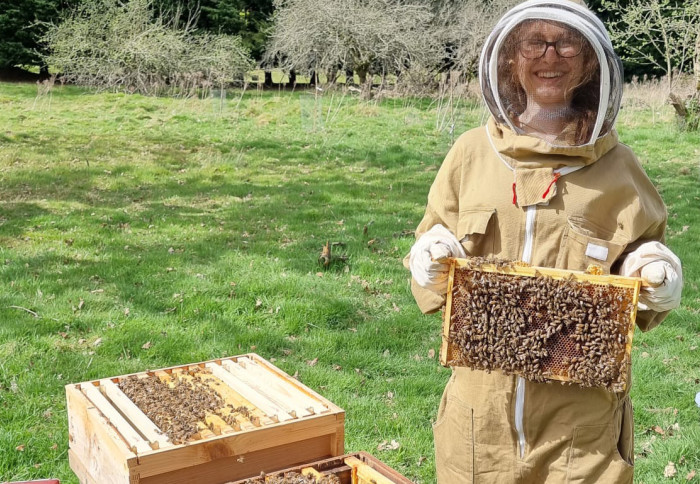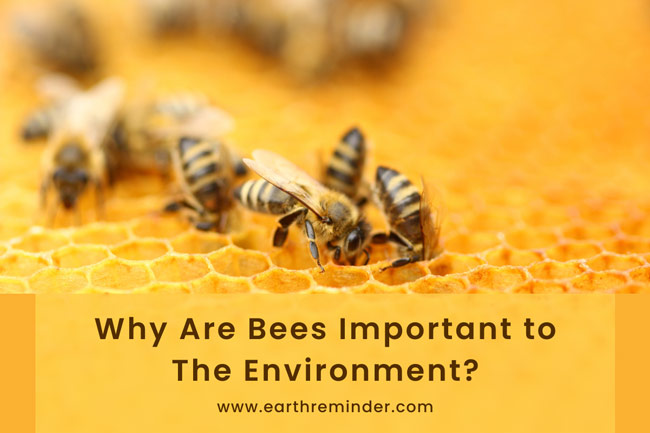Contents
- I. Introduction
- II. The Role of Bee Research in Agriculture
- III. The Impact of Bee Research on Environmental Sustainability
- IV. Bee Research and the Global Food Supply
- V. The Economic Significance of Bee Research
- VI. Bee Research and Beekeeping Practices
- VII. Frequently Asked Questions about Bee Research
- 1. Why is bee research important?
- 2. What topics does bee research cover?
- 3. How does bee research contribute to agriculture?
- 4. Are there any recent advancements in bee research?
- 5. Can bee research help solve global food security issues?
- 6. How can individuals support bee research?
- 7. What are some ongoing challenges in bee research?
- 8. Can anyone contribute to bee research?
- 9. How does climate change affect bees?
- 10. Are there any future prospects for advancements in bee research?
I. Introduction

Welcome to the fascinating world of bee research! Bees, often referred to as nature’s unsung heroes, play a crucial role in our ecosystem and have been captivating scientists and researchers for centuries. The study of bees, known as apiculture or melittology, encompasses various aspects including their behavior, ecology, genetics, and conservation.
Understanding the importance of bee research is essential for safeguarding not only the well-being of these incredible insects but also our own survival. Bees are vital pollinators that contribute to the reproduction of numerous flowering plants and crops worldwide. In fact, it is estimated that one out of every three bites of food we consume is thanks to the hard work of bees.
In recent years, however, bees have faced numerous challenges due to factors such as habitat loss, pesticide use, climate change, and diseases like colony collapse disorder (CCD). These threats have resulted in declining bee populations globally. This decline has raised alarm bells among scientists and researchers who recognize the far-reaching consequences it can have on our environment and food security.
A. Bee Behavior
Bee behavior is a captivating field within bee research that delves into how bees communicate with each other using pheromones and intricate dances. Researchers study how bees navigate through complex landscapes while foraging for nectar or pollen. Understanding their behaviors helps us comprehend their role in maintaining plant diversity through pollination.
B. Bee Ecology
Bee ecology examines the relationship between bees and their environment – from nesting habits to preferred floral resources. This field explores how changes in land use affect bee populations and investigates ways to create sustainable habitats that support diverse communities of these essential pollinators.
C. Bee Genetics
Examining bee genetics provides insights into the evolutionary history, diversity, and adaptation of different bee species. Researchers study how genes influence traits such as foraging behavior, disease resistance, and reproductive strategies. This knowledge can aid in breeding programs to develop resilient bee populations.
D. Bee Conservation
Bee conservation focuses on developing strategies to protect and restore bee populations. Research in this area involves identifying the main threats to bees, creating initiatives for habitat restoration, promoting sustainable agricultural practices, and raising awareness about the importance of bees among policymakers and the general public.
By delving into these areas of research, scientists aim to address the challenges faced by bees today and work towards ensuring their survival for future generations. As we embark on this journey through the fascinating world of bee research together, let’s explore how these incredible creatures shape our planet’s biodiversity while providing us with nourishment through their indispensable pollination services.
II. The Role of Bee Research in Agriculture

Bee research plays a vital role in the field of agriculture, as bees are essential pollinators for many crops. The intricate relationship between bees and plants has a direct impact on food production, ecosystem stability, and biodiversity. Understanding the role of bee research helps us comprehend the significance of conserving these invaluable insects.
Pollination Efficiency and Crop Yield
One crucial aspect studied through bee research is pollination efficiency. Bees are highly efficient pollinators due to their unique behavior and physical characteristics. They have specialized body parts that allow them to collect pollen from flowers and transfer it to other plants while foraging for nectar.
Researchers investigate different factors affecting pollination efficiency, such as flower morphology, bee behavior, and environmental conditions. By understanding these factors, farmers can optimize crop yields by ensuring adequate bee populations and promoting suitable habitat for their survival.
Biodiversity Conservation
Bee research also contributes to biodiversity conservation efforts. Bees play a significant role in maintaining plant diversity by facilitating cross-pollination among various species. They contribute to the reproduction of flowering plants that rely on animal pollinators.
Through comprehensive studies on different bee species’ preferences and requirements, researchers can identify key habitats necessary for supporting diverse populations. Protecting these habitats not only benefits bees but also helps maintain overall ecosystem health by preserving plant diversity.
Pest Control Strategies
In addition to their role as pollinators, certain types of bees are effective pest controllers in agricultural systems. For instance, some solitary bees prey upon pests like aphids or caterpillars that damage crops.
Bee researchers study natural enemies’ interactions with pests within farming environments to understand how they can contribute to integrated pest management strategies. By promoting the presence of beneficial bees, farmers can reduce reliance on chemical pesticides and create more sustainable and eco-friendly farming practices.
Climate Change Resilience
Bee research also investigates the impact of climate change on bee populations and their foraging patterns. As temperatures rise and weather patterns shift, it is crucial to understand how these changes affect bees’ ability to survive and pollinate.
By studying the effects of climate change on bees, researchers can provide insights into potential adaptations that both bees and agricultural systems may need in the future. This knowledge helps farmers make informed decisions about crop selection, land management practices, and conservation efforts necessary for maintaining a resilient food production system.
III. The Impact of Bee Research on Environmental Sustainability

Bee research plays a crucial role in promoting environmental sustainability and addressing the challenges faced by our planet. By studying bees and their behaviors, scientists are able to gain valuable insights into the delicate balance of ecosystems and develop strategies to protect biodiversity.
1. Pollination and Plant Diversity
Bees are known as nature’s pollinators, playing a vital role in plant reproduction. Through their foraging activities, bees transfer pollen from male to female flower parts, enabling plants to produce fruits and seeds. This process is essential for maintaining plant diversity as it ensures genetic variation within species and supports the growth of new plants.
2. Food Security
The impact of bee research extends beyond plant life; it also affects our food supply chain. Bees contribute significantly to crop pollination, enhancing yield quantity and quality for many agricultural crops such as fruits, vegetables, nuts, and oilseeds. By understanding bee behavior patterns through research efforts, we can optimize farming practices that promote effective pollination techniques leading to increased food production.
3. Conservation Efforts
Bee research contributes greatly to conservation efforts aimed at safeguarding endangered species of bees worldwide. It helps identify threats faced by these important pollinators such as habitat loss, pesticide use, climate change impacts or diseases that affect their populations negatively.
4. Sustainable Agriculture Practices
Bee-related studies assist in developing sustainable agricultural practices that minimize environmental harm while maximizing productivity levels on farms globally.
Through researching different farming methods like organic or integrated pest management systems (IPM), researchers can find ways where farmers can reduce reliance on harmful pesticides detrimental not only to bees but also human health without compromising crop yields.
In conclusion, bee research is of utmost importance for environmental sustainability. It enables us to understand the intricate relationships between bees, plants, and their ecosystems. By supporting and investing in bee research efforts, we can protect biodiversity, enhance food security, promote conservation initiatives, and develop sustainable agricultural practices that benefit both nature and humans alike.
IV. Bee Research and the Global Food Supply

Bee research plays a crucial role in ensuring the stability of our global food supply. Bees, as pollinators, are responsible for fertilizing flowering plants by transferring pollen from male to female parts, enabling plant reproduction. This process is essential for the production of fruits, vegetables, nuts, and seeds that make up a significant portion of our diet.
The Decline in Bee Population
Unfortunately, over the past few decades, there has been a notable decline in bee populations worldwide. Several factors contribute to this decline including habitat loss, pesticide use, climate change effects on flowering patterns, and diseases such as colony collapse disorder (CCD).
Habitat loss due to urbanization and industrial agriculture has led to reduced floral resources for bees. Pesticides used in farming practices have also been linked to bee deaths as they can be toxic to these vital pollinators.
Climate change brings about changes in temperature and precipitation patterns that affect plant blooming cycles. These shifts can disrupt the synchronization between flowers and bees’ activity periods.
Diseases like CCD have devastated honeybee colonies globally. The exact cause of CCD remains unclear but is thought to be influenced by factors such as pathogens (like viruses), parasites (such as varroa mites), poor nutrition due to limited floral resources availability or low-quality nectar sources.
The Importance of Bee Research
Bee research is imperative for understanding these complex issues affecting bee populations around the world so that effective conservation strategies can be developed.
Scientists studying bees aim to unravel the causes behind colony losses and develop sustainable solutions that protect both wild bees and managed honeybee colonies.
Pollinator-Friendly Agricultural Practices
Bee research has shed light on the importance of adopting pollinator-friendly agricultural practices. Farmers and growers are encouraged to reduce or eliminate pesticide use, create diverse habitats with a variety of flowering plants, and provide nesting sites for bees.
By implementing these practices, farmers not only support bee populations but also enhance crop yields through improved pollination.
Global Food Security
The global food supply heavily relies on the services provided by bees. It is estimated that around 75% of the world’s leading food crops depend at least partially on animal pollinators like bees. Without adequate pollination, crop production would be severely impacted, leading to reduced harvests and increased food prices.
Therefore, investing in bee research is crucial for ensuring global food security and safeguarding our planet’s biodiversity. By understanding the challenges faced by bees and taking appropriate actions to protect them, we can preserve a healthy ecosystem that sustains both nature and humanity.
V. The Economic Significance of Bee Research
Bee research holds immense economic significance due to the vital role bees play in pollination and food production. Bees are not only important for the natural ecosystem but also have a direct impact on agriculture, making them crucial for sustaining our global food supply.
Pollination and Crop Yield
One of the main reasons why bee research is economically significant is because bees are responsible for pollinating a large portion of crops. As they collect nectar from flowers, bees unintentionally transfer pollen grains from one flower to another, facilitating fertilization. This process leads to successful fruit and seed production in plants, ultimately resulting in higher crop yields.
Without sufficient bee populations or effective pollination, many crops would suffer reduced yields or fail entirely. This could lead to decreased availability of key food items, increased prices at grocery stores, and potential shortages that could impact both consumers and farmers alike.
Economic Value of Pollinators
Besides their direct influence on crop yield, bees contribute significantly to the economy through their role as pollinators. It is estimated that insect pollination contributes around $235–$577 billion annually globally to agricultural output (source: IPBES report). The value derived from this ecosystem service highlights how essential it is to protect bee populations through ongoing research.
Innovation in Agriculture
Bee research plays an instrumental role in driving innovation within the agricultural sector. Scientists studying bees seek solutions for combating colony collapse disorder (CCD), identifying sustainable pest management techniques, developing strategies for healthier hive management practices, and exploring ways to improve honeybee breeding programs.
By gaining insights into bee behavior and health factors affecting their survival rates, researchers can develop new technologies that support more efficient and sustainable agricultural practices. This, in turn, can reduce production costs for farmers, enhance crop quality and quantity, and contribute to a more profitable and resilient agricultural industry.
Ecotourism and Honey Production
Bee research also has economic implications beyond agriculture. Bees are not only valued for their pollination services but also for honey production. Beekeeping is an important industry that generates revenue through the sale of honey, beeswax products, pollen supplements, royal jelly, and other bee-related commodities.
Moreover, the presence of healthy bee populations can attract tourists interested in witnessing the intricate workings of beehives or learning about beekeeping practices. Ecotourism activities centered around bees provide additional income opportunities for local communities.
VI. Bee Research and Beekeeping Practices
Bee research and beekeeping practices play a vital role in ensuring the health and productivity of bee colonies. With the decline in global honeybee populations, it has become increasingly important to understand these incredible creatures better.
The Importance of Research
Ongoing research on bees helps scientists gain valuable insights into their behavior, biology, and ecology. By studying bees, researchers can identify factors that contribute to their decline and develop effective strategies for conservation.
One area of focus is understanding the effects of pesticides on bees. Pesticides are widely used in agriculture but can have detrimental impacts on bee health. Through extensive research, scientists can recommend alternative pest management methods that minimize harm to bees while still protecting crops.
Sustainable Beekeeping Practices
Beekeepers around the world are adopting sustainable practices to support healthy bee populations. These practices not only benefit bees but also promote environmental sustainability.
An important aspect of sustainable beekeeping is providing a diverse range of floral resources for bees. Planting native wildflowers or creating pollinator-friendly gardens ensures that honeybees have access to a variety of nectar sources throughout the year.
Integrated Pest Management (IPM)
Integrated Pest Management (IPM) is an essential practice in modern beekeeping. It involves using a combination of preventive measures, biological controls, and targeted pesticide applications when absolutely necessary to manage pests effectively without harming bees or other beneficial insects.
Hive Hygiene
Maintaining proper hive hygiene is crucial for preventing disease outbreaks within bee colonies. Regular cleaning and inspection help detect signs of diseases early on so appropriate measures can be taken promptly.
Routine hive maintenance includes removing debris, replacing old combs, and ensuring adequate ventilation to prevent the buildup of moisture and molds.
Genetic Diversity
Preserving genetic diversity within bee populations is critical for their long-term survival. Breeders are working on developing strains of bees that exhibit traits like disease resistance and productivity while maintaining genetic diversity. This helps ensure that colonies are resilient in the face of changing environmental conditions.
In conclusion, ongoing research on bees and the adoption of sustainable beekeeping practices are crucial for protecting these vital pollinators. By understanding their needs and implementing best practices, we can contribute to the conservation of honeybees and other bee species, ultimately benefiting our ecosystems and food security.
VII. Frequently Asked Questions about Bee Research
Curiosity about bee research is natural, as these tiny creatures play a vital role in our ecosystem. To address some of the common queries, here are the most frequently asked questions about bee research:
1. Why is bee research important?
Bee research is crucial because bees are essential pollinators for plants, contributing to the reproduction and growth of various crops and flowers. Understanding their behavior, health, and habitat helps us protect and conserve them.
2. What topics does bee research cover?
Bee research encompasses a wide range of topics such as understanding colony collapse disorder (CCD), studying honeybee nutrition and diseases, investigating pesticide effects on bees, exploring new methods for hive management, and analyzing the impact of climate change on bee populations.
3. How does bee research contribute to agriculture?
Bee research provides insights into improving crop yield through effective pollination techniques. By understanding how bees interact with different plant species, researchers can develop strategies to enhance agricultural productivity while minimizing environmental impacts.
4. Are there any recent advancements in bee research?
Absolutely! Recent advancements include the use of technology like RFID tags to track individual bees’ movements within a hive or during pollination flights; genetic studies to understand specific traits related to disease resistance; and innovative methods for sustainable pest control without harming beneficial insects.
5. Can bee research help solve global food security issues?
Absolutely! Bee populations directly influence food production by ensuring healthy crop yields through pollination services. By studying bees’ behavior patterns and their interactions with plants under varying conditions, researchers can contribute valuable knowledge towards addressing global food security challenges.
6. How can individuals support bee research?
Individuals can support bee research by creating pollinator-friendly habitats in their gardens or balconies, using organic and bee-friendly pest control methods, supporting local honey producers, and spreading awareness about the importance of bees to their communities.
7. What are some ongoing challenges in bee research?
Ongoing challenges include funding limitations for comprehensive studies, the complexity of studying wild bees due to their diverse habitats, understanding long-term effects of pesticide exposure on bee health, and finding sustainable solutions to combat colony collapse disorder.
8. Can anyone contribute to bee research?
Absolutely! Citizen science initiatives allow individuals without formal scientific training to actively participate in data collection by monitoring pollinators or reporting sightings. This collective effort significantly contributes to our understanding of bees’ distribution and behavior.
9. How does climate change affect bees?
Climate change poses several risks to bees such as altered flowering patterns disrupting food availability, increased heat stress affecting foraging behavior and reproduction rates, changes in precipitation impacting nectar quality, and habitat loss due to extreme weather events.
10. Are there any future prospects for advancements in bee research?
The future of bee research holds great promise as scientists continue exploring innovative technologies like remote sensing techniques for mapping floral resources, developing sustainable agricultural practices that promote coexistence with pollinators, advancing genetic studies for breeding resilient honeybee populations, and leveraging artificial intelligence tools for analyzing complex datasets related to bees’ behavior.
Bee research is a dynamic field that constantly uncovers new information about these remarkable creatures; it plays a vital role in safeguarding both biodiversity and global food security.

Andrew Boyer is an accomplished individual with a deep-rooted passion for bees and their conservation. Born and raised in a small town in Oregon, Andrew developed an early fascination with nature and the environment. He pursued his education at the prestigious University of Oregon, where he obtained a Bachelor’s degree in Environmental Science with a specialization in Entomology. During his time at university, Andrew conducted extensive research on the behavior and ecological impact of bees, earning him recognition from his peers and professors. His dedication to the field led him to internships at local beekeeping associations, where he honed his skills in hive management and honey production. Andrew’s expertise in beekeeping and his commitment to environmental sustainability make him a valuable asset in the conservation of these vital pollinators.
